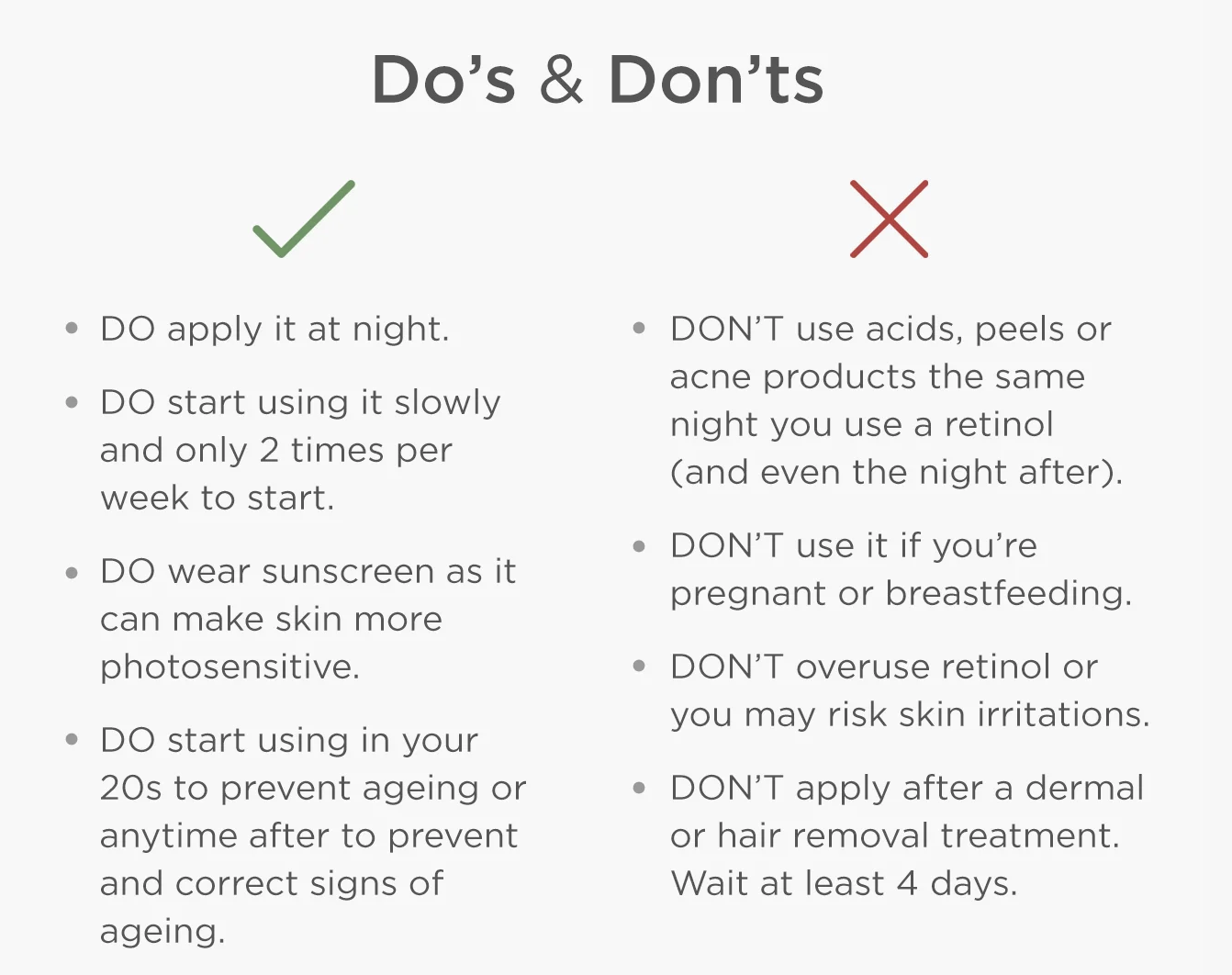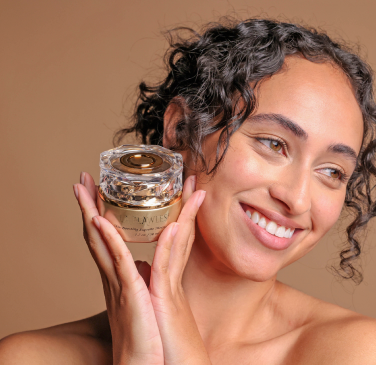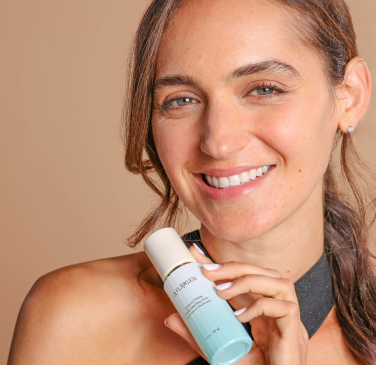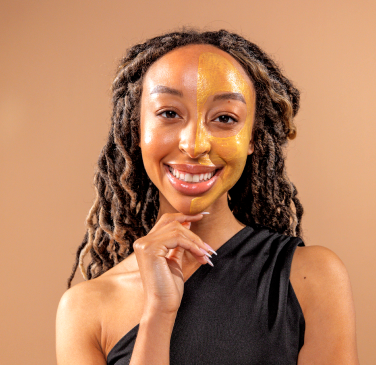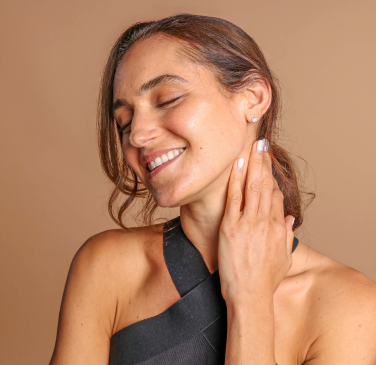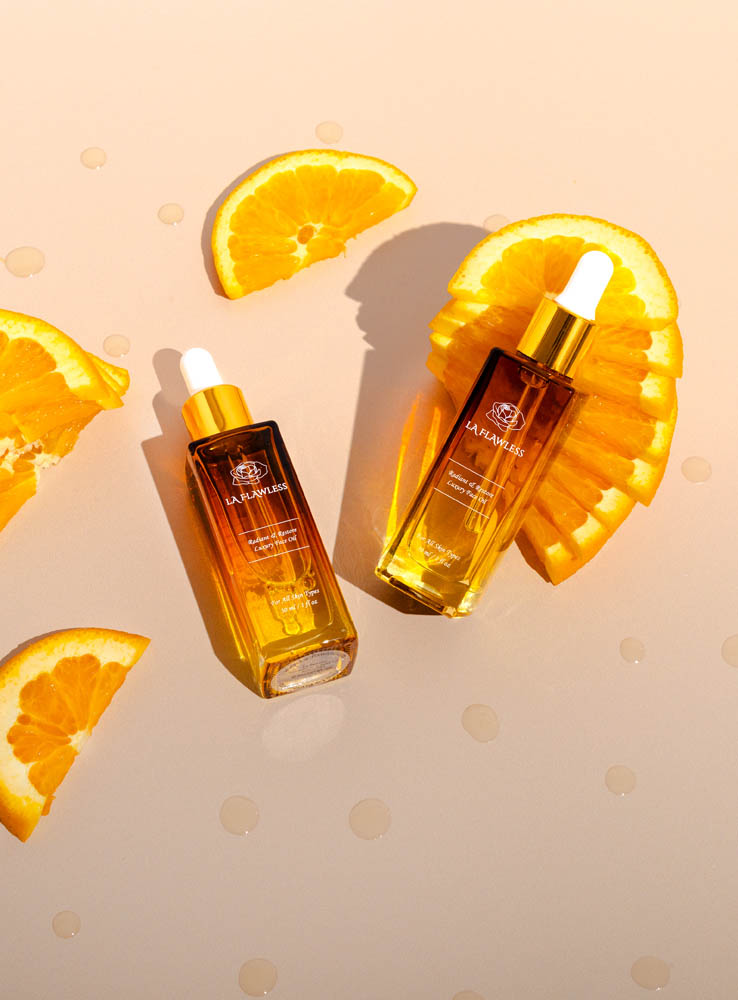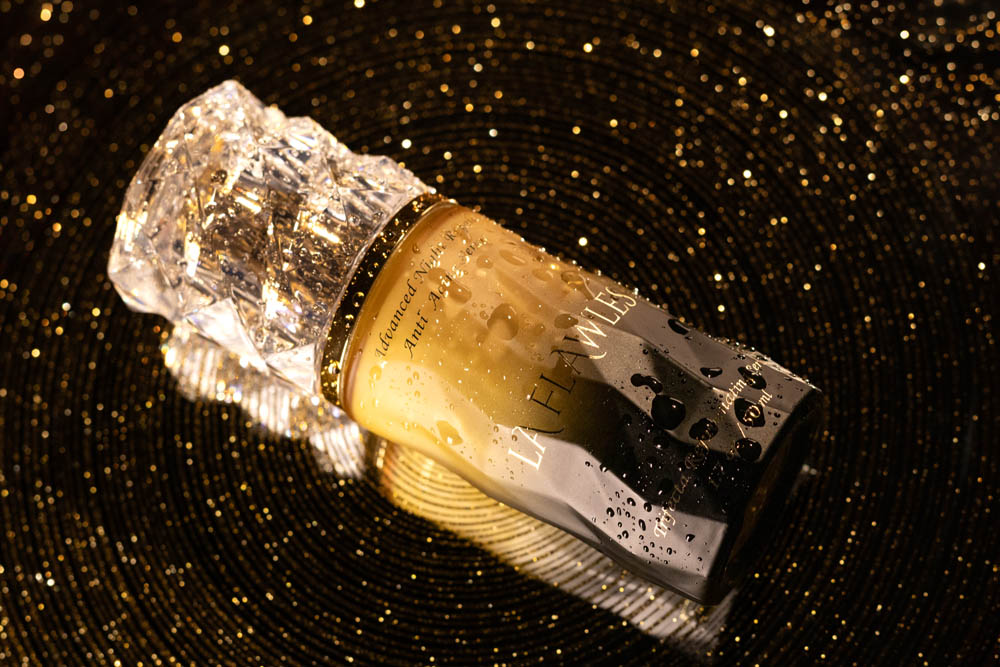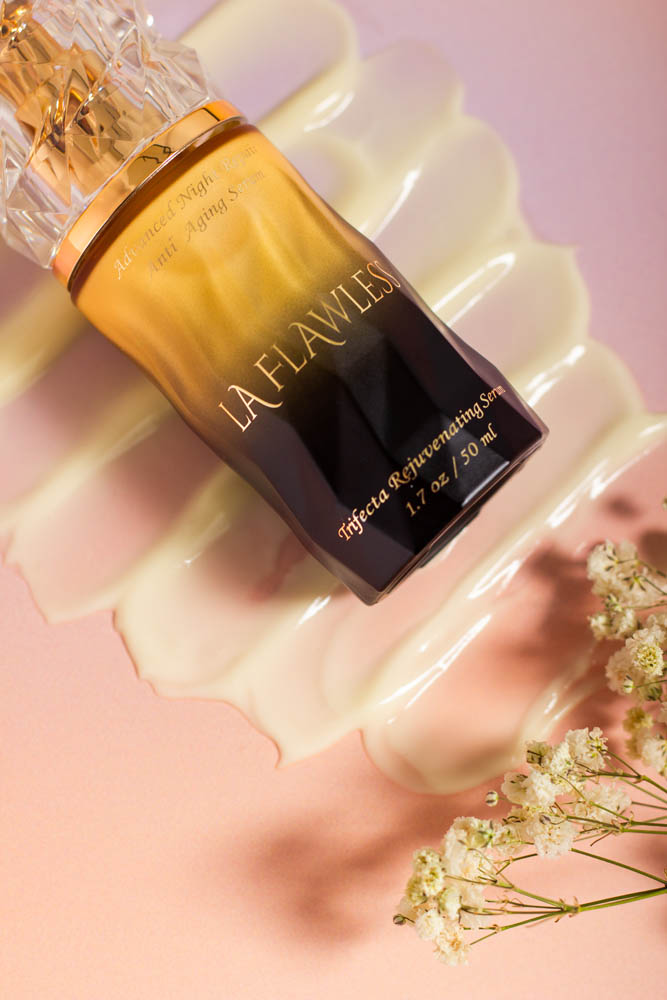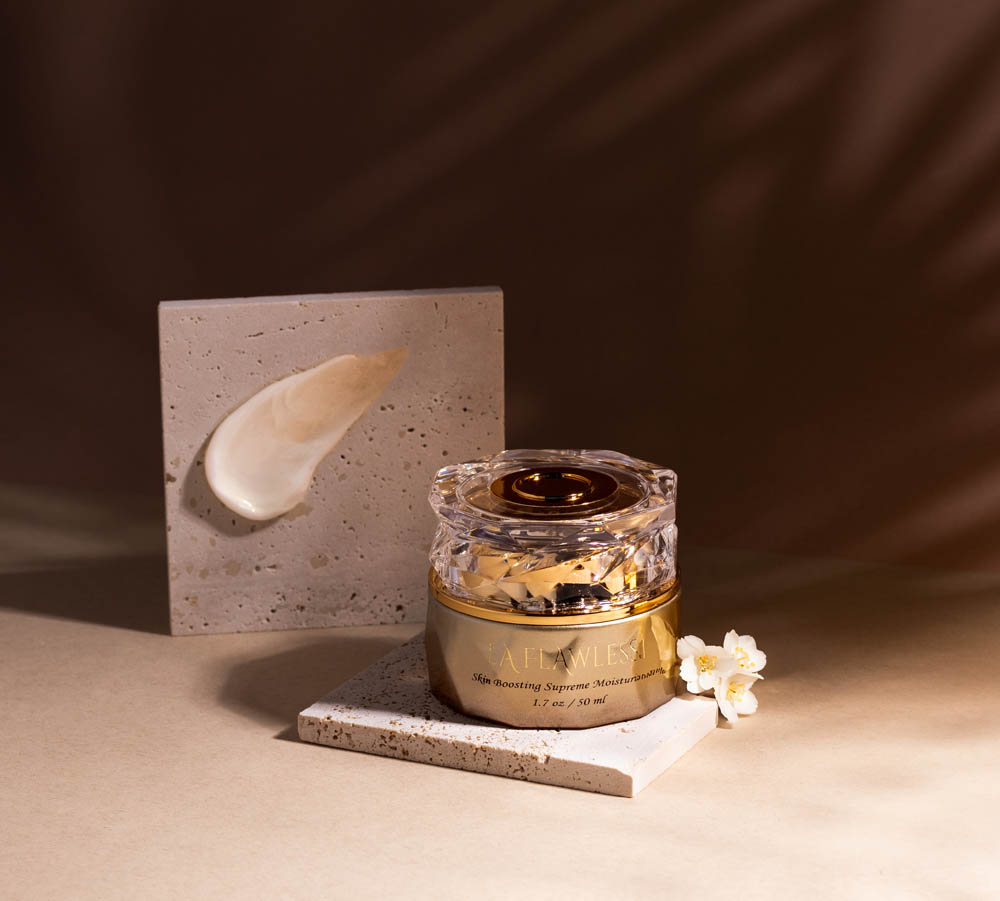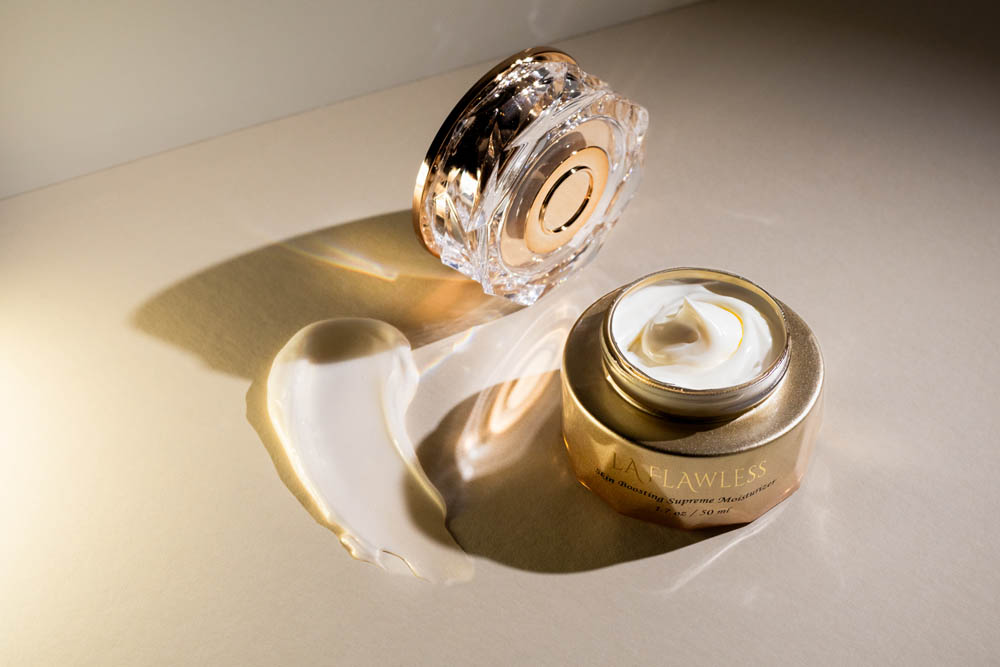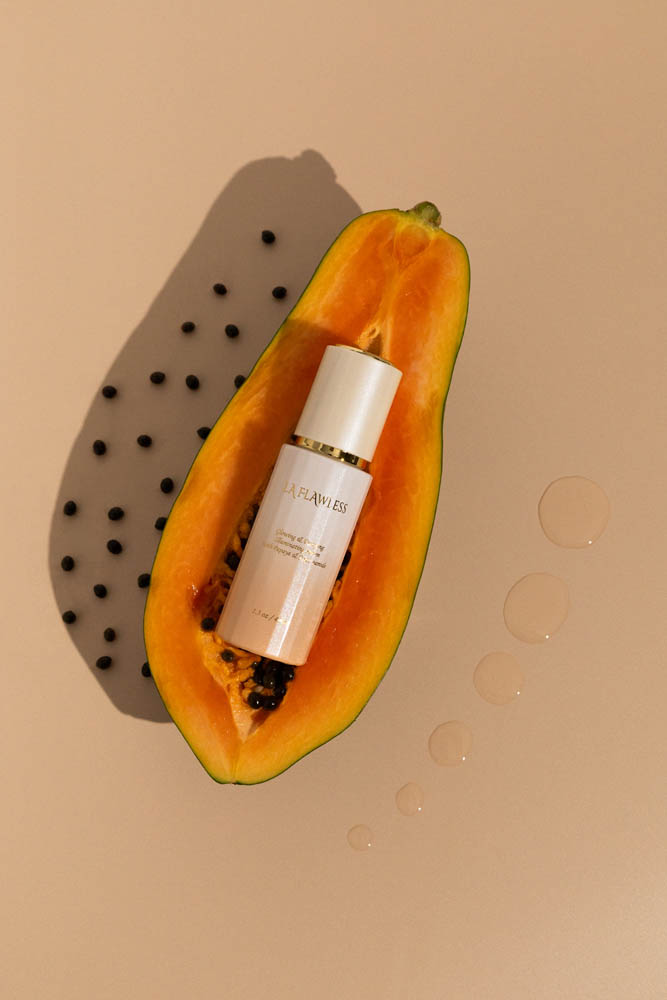Misconception about retinol and things that you must know
We are discussing a very important topic, one that has very practical implications and one that I want you to walk away from and being completely empowered and knowledgeable and that is about retinol and the dos and don'ts around it.
Why is this so important? Well number one, retinol is sort of like the superhero of skincare ingredients. If you're not using retinol as part of your anti-aging routine, you're missing out big time. You do not want this particular ingredient out of your routine and you'll understand why when we get into it, but it's also one of those topics and products that truly requires some knowledge to be able to use it right, because historically people have had a really hard time getting used to using retinol. Because it does have some pushback, meaning I am sure you've heard cases of people using Retin-A for example, and they get redness they get inflamed. They get flaky all those kinds of so immediately. You may believe oh I can't use this. My skin isn't compatible with it and they drop it and they're missing out.
So after go over the do's and don'ts you will understand. You can have a better relationship with retinol's and how to succeed in getting yourself on the level that you want to be and it achieving your anti-aging goals.
Why is retinol so powerful and why is this so important?
Number one, well because retinol hit anti-aging right in the gut. Aging changes that are happening. It will come down to basically these changes, you've got lines and wrinkles, which comes from thinning of the skin which comes from loss of collagen. You really you have to understand that loss of collagen is a persistent process that starts in our mid-20s and gets worse and worse as we age especially for women perimenopause and menopause is like going off a cliff, skin starts to thin, lines and wrinkles etc.
Number two, pigmentation. We see sunspots as a skin ages. That is a very common thing of uneven tone. Then there's also pores and dehydration and dullness, all these things are happening to the skin and makes the skin look old.
Guess what, retinol affect every one of them directly. So it increases collagen stimulation increases cell turnover, it exfoliates the surface of the skin. So the dullness improves, it directly affects the production of melanin, so the pigmentation decreases. You are talking about a multitasking very powerful ingredient and that's why it's so critical to have This is part of your routine.
Retinol also one of the most studied active ingredients in the entire skincare game. No ingredient has been studied and published about more than Retin-A. We are talking about 40 plus years of clinical studies, in good clinical studies where you take skin biopsies of somebody and then you take skin biopsies later on, you see, wow, the Skins gotten thicker overtime or that at the genetic level, the fibroblasts are increasing Collagen stimulation as a result of it. There's just so much that has been done to study this product over the last 40 years.
This product this particular ingredient does what it's supposed to do. So, let's talk about history real quick, very briefly. So Retin-A is a prescription product. It's a derivative of vitamin A. The class is called retinoid. So let's start from the beginning retinoids have two different varieties they have Renee and they have retinol's historically retinas were the only show in town. You have to get a prescription and you use it. It was primarily used for acne controlled, Why? because the exfoliation aspect of it for the oil control aspect of it. It could decrease the production of those things that lead to acne scars, acne drug basically, but then people found that it had these anti-aging effects like anything else started then using it for more cosmetic purposes, but you needed a prescription then downstream several decades later Retinol is which are over-the-counter and came up.
So they're also derivatives from vitamin A. They basically exactly what Retin-A does the concentrations are going to look different but the fundamental changes that we just discussed exist for both of them. Most people now are not going to prescription level Retin-A. They're just getting retinol and retinol Zara found in a number of different brands and ingredients and all that stuff and just to be clear for when we develop the Advanced Night Repair Trifecta, we knew we’re sure that retinol had to be a part of the trifecta.
I mean for all the reasons I'm telling you. I knew it had to be included component of a good skincare routine. There are some unique aspects of it that I'm going to highlight as we go through so you just kind of understand when it comes to do's and don'ts, how we incorporated those understandings and the goal of making it available for any skin type sensitive or not male or female, younger old and compatible with any other.
So the bottom line is retinol once or Retin-A, when it gets into the skin either one of them goes through two different chemical transformations to finally get to a point where it's actually used in the form of retinoic acid at the level of the cells. That's where the stuff is being done. So there's a conversion step that goes along and that is where activity begins
Okay, so let's start with the do's number 1.
Start slow, slow and steady wins the race with skincare guys. This is not going into the operating room getting a vertical restore coming out, you know, two weeks later looking 20 years younger. This is a slow steady more or less like a lifestyle type of a concept. These actives are working. They're working slowly chipping away in skin aging but also restoring skin aging as well. So here's the deal, most times if you go out and buy a retinol cream or a retinol drop or whatever the situation is.
There are some things that that happen to the skin one typically is that there's this reaction that occurs and a lot of times people will take that reaction as like, oh I can't use retinol is anymore because my skin has gotten red. It's gotten fired up and it just looks terrible and they throw it away. This has been the story forever.
This has been the number one reason why a hundred percent of people are not on retinol but here's some ways around it. So do go slow use low concentrations. Honestly, the lower concentration the better to begin with, if your skin is still having issues with it, go twice a week, then go three times a week every other day etc. Then after 2 tow 3 weeks go to every day the goal is to get to using this every day. Although some people say five times a week is enough. I say use it every day. If you can get to that to that point you should but really it helps a lot by going low concentration. Now, here's where one of the interesting things that you get benefits from even low concentrations as long as it's being used regularly.
When we developed the Advanced Night Repair Trifecta, we decided because whenever we went up to a higher concentration and get the same problems that people had, so we decrease the concentrations nice and low and what ended up happening is people can use it regular but we also did something unique. We formulated in a such blend that it really works regardless if you use it at night or day. So, it's not bombarding it all at once and we microdose. Simply the way the product is meant to be used for morning and night.
Number two. Do you use it at night. So generally speaking, again. We're not talking about Advanced Night Repair Trifecta which has its split dosing routine that you can use it AM and PM. I'm talking about just normal retinol that you go to a store or your dermatology offices. Generally, it's meant to be used at night, and the reason is that retinol's are light sensitive. So putting it on right before you go out is not necessarily a great thing. Light exposure can deactivate it and then the other aspect of it, is sun in and of itself can make the skin sensitive to the retinol. Those effects that we're talking about can be exacerbated. If you're getting a lot of sun on it. So definitely I would say generally using retinol at night is safer and easier on the skin. So, I would recommend doing it at night. And for those of you who use Advance Night Repair Trifecta or thinking about using it, you're like wait, you just told me to use it at night time remember? It's split doses, light Doses and it's a compounded slow release. So when you use it AM/PM, it's completely fine. Trying to get the total dose into you over a 24-hour period And there's no morning or night considerations with the retinol that's in the Advanced Night Repair.
Number three, Advance Night Repair, you do not need a moisturizer. However, if you are using a over the counter retinol, do you use it with moisturizer. Retinol has a drying effect generally speaking and using it with a high erotic acid type of a moisturizer that draws fluid and helps moisturize the skin is very important. For example, there's been some, considerations theories that like use it as a retinol sandwich basically like a moisturizer let it on for 5 or 10 minutes then use the retinol then use moisturizer again, so you getting like lots of money.
Let's discuss a few don’ts
Don't number one. If you're not going to use a specially formulated Advanced Night Repair retinol, definitely do not use it in the morning for the reasons we just described nighttime use is better.
Don't number two. A lot of brands are incompatible with other products like vitamin C with Glycolic acid and Benzoyl Peroxide. So be careful when you're mixing one brands retinol with another brands vitamin C. They oftentimes don't go together, going to have a lot of harsh reactions to the Skin. So as a general rule don't mix those two, but here's the caveat again vitamin C, which I am going discuss separately, is a wonder drug as well as a wonderful powerful active ingredient you definitely want it as part of your routine.
So one way around it, you know for those who are not using the Advanced Night Repair Serum, you can do one night vitamin C or use vitamin C in the daytime. Retinol at night. Use them alternating if you can't put them together because they're going to be too harsh.
We thought of all of this we engineered it chemically to where vitamin C retinol all of that can be used at the same time AM/PM to get all that like Added which goes first what goes in the morning what goes at night either way. So those are some of the things that the benefits that come from when you combine things purposefully deliberately. So they can live together nicely, but generally speaking the rule of thumb is don't mix vitamin C and retinol together from different brand.
Don't number three. Don't use it. If you're pregnant. It's not worth it during that period of time to add anything. You don't know, I think most OBGYNs agree with that generally speaking. You don't want to use retinol at that time. I would hundred percent ask you to speak with your OBGYN before using any type of active ingredients on your skin.
Don't number four. If you're going to have a laser if you're going to have waxing, if you have a chemical peel, if you're going to have something done to your skin, don't use it at the same time as the treatment. Stop using the retinol, talk to the practitioner. How many days they want you to stay off of a general you want to stop it before you get those type of treatments.
So number five. Don't use retinol while with skin treatments
Do number Six. Don't use too much. You don't need that much. We have this like more is better mentality. But the reality is it's not necessary more can just me more of those unnecessary complications that you see, read the directions very carefully. Even if you want to err on the side are on less as long as you get it on your skin, even if it's less it's still doing more for you than not using it at, also benefit of consistency and I just generally speaking though. It's better to use a little bit every day than it is to use a little bit or the proper amount once or twice a week.
That doesn't make a lot of sense because what you're doing is you're trying to stimulate the cells to do the things you wanted to do that requires consistency if your cells are seeing this once a week or twice a week just not enough activity for it to start building momentum in the right direction. So even if you can tolerate a little bit it's better to do it regularly and get it onto your skin.
And final don't.
Don't quit on it. Don't be like 90% of the people. Once it gets acclimated to it, you just good to go and every time you quit by the way, because we have to go get a laser done or you're going to go do something else done. You're going to go through that exclamation phase again.
I think that is probably the most comprehensive do's and don'ts list and just all there is to know about Retin-A and retinols. We want you guys to get inspired by to motivated by it be informed by an empowered by it so that you can make the right decisions for yourself.

